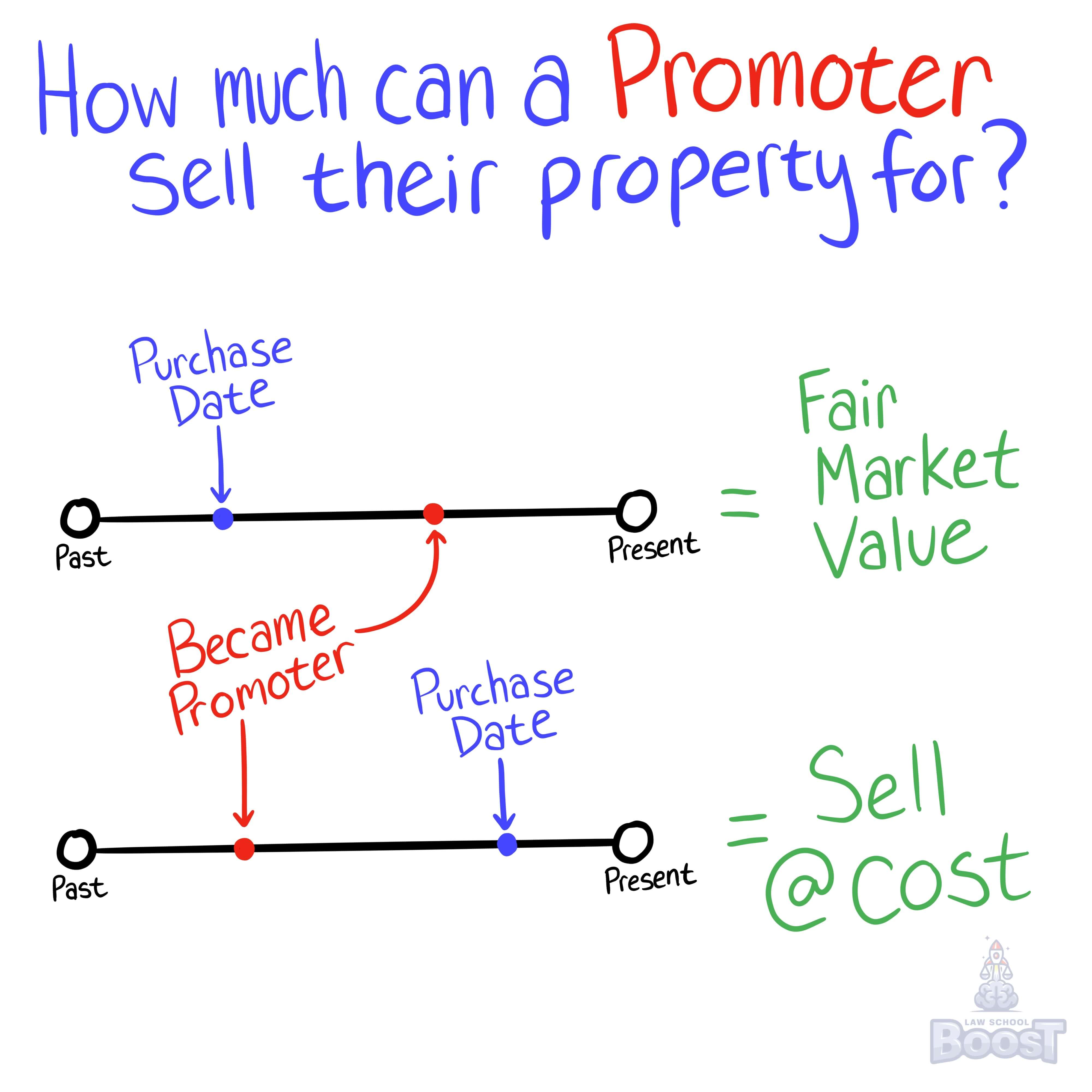🌕
Corporations • Pre-Corporation Formation
CORP#004
Legal Definition
Promoters are fiduciaries of each other and the corporation. Therefore, promoters cannot make a secret profit on their dealings with the corporation (i.e., no self-dealing or usurpation of corporate opportunities is permitted). Thus, where the promoter sells to the corporation property he acquired before becoming a promoter, the corporation may recover the profit on the sale only if the promoter sold it for more than fair market value. Where the promoter acquired the property after becoming a promoter, the corporation may recover any profit.
Plain English Explanation
Promoters are trusted representatives of a corporation and, as such, the law will enforce that trust by requiring each promoter to be ethical. In other words, promoters aren't allowed to backstab other promoters or the corporation that they represent. In many ways, the promoter is obligated to place the interests of the corporation above all others, including their own.
One common area that can cause issues is when promoters are selling stuff to the corporation. Imagine if a corporation is looking to buy land in order to build an office, and that land is owned by a promoter. Given the level of trust between the corporation and promoter, it's less likely that the corporation will be as thorough or critical in assessing the deal as they would be against a stranger. This can make it easier for the promoter to rip the corporation off.
The way the law deals with this is if the promoter owned the property before they became a promoter, then they are allowed to make some profit, but only whatever they would have made selling it on the open market. For example, imagine if Bob purchased a parcel of land for $100,000 and then, years later, became a promoter for a new corporation. The corporation wants to purchase Bob's parcel because it would be the perfect place for their new office, and Bob wants to sell it to them. But how much should Bob charge them? The answer is: whatever is a fair market rate. In other words, if Bob were to put his parcel of land on the market and find that he got offers for $200,000, then it would be fair to charge the corporation $200,000. In contrast, if the market only values the land for $200,000, then it would be unfair for Bob to sell it to the corporation for $600,000. Why? Because Bob is using his influence on the company to earn more money, which is a back-stabby thing to do and, ultimately, a violation of his fiduciary duties. If the corporation later wants to sue Bob, it can recover $400,000 (the profit above the fair market value).
Things change if Bob purchases the parcel of land after becoming a promoter. Imagine if Bob became a promoter and then purchased a parcel of land for $100,000. If he decides to sell it to the corporation, he must sell it for $100,000 even if it is worth more. Why? Because the law believes the corporation should benefit from Bob as an extension of itself, and doesn't want to incentivize promoters to upsell their corporations.
One common area that can cause issues is when promoters are selling stuff to the corporation. Imagine if a corporation is looking to buy land in order to build an office, and that land is owned by a promoter. Given the level of trust between the corporation and promoter, it's less likely that the corporation will be as thorough or critical in assessing the deal as they would be against a stranger. This can make it easier for the promoter to rip the corporation off.
The way the law deals with this is if the promoter owned the property before they became a promoter, then they are allowed to make some profit, but only whatever they would have made selling it on the open market. For example, imagine if Bob purchased a parcel of land for $100,000 and then, years later, became a promoter for a new corporation. The corporation wants to purchase Bob's parcel because it would be the perfect place for their new office, and Bob wants to sell it to them. But how much should Bob charge them? The answer is: whatever is a fair market rate. In other words, if Bob were to put his parcel of land on the market and find that he got offers for $200,000, then it would be fair to charge the corporation $200,000. In contrast, if the market only values the land for $200,000, then it would be unfair for Bob to sell it to the corporation for $600,000. Why? Because Bob is using his influence on the company to earn more money, which is a back-stabby thing to do and, ultimately, a violation of his fiduciary duties. If the corporation later wants to sue Bob, it can recover $400,000 (the profit above the fair market value).
Things change if Bob purchases the parcel of land after becoming a promoter. Imagine if Bob became a promoter and then purchased a parcel of land for $100,000. If he decides to sell it to the corporation, he must sell it for $100,000 even if it is worth more. Why? Because the law believes the corporation should benefit from Bob as an extension of itself, and doesn't want to incentivize promoters to upsell their corporations.
Visual Aids



